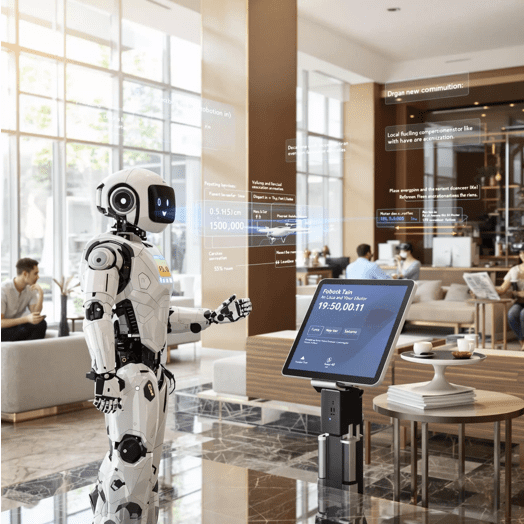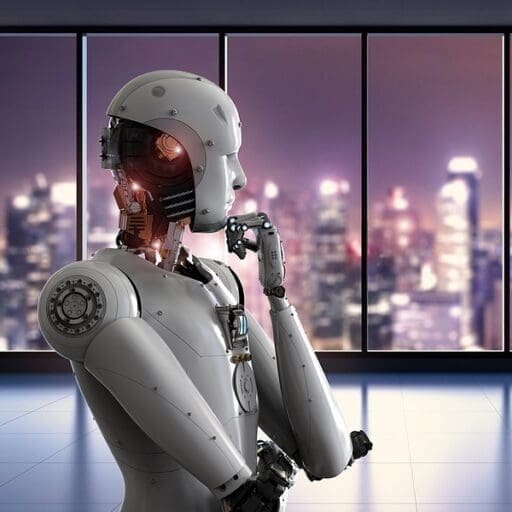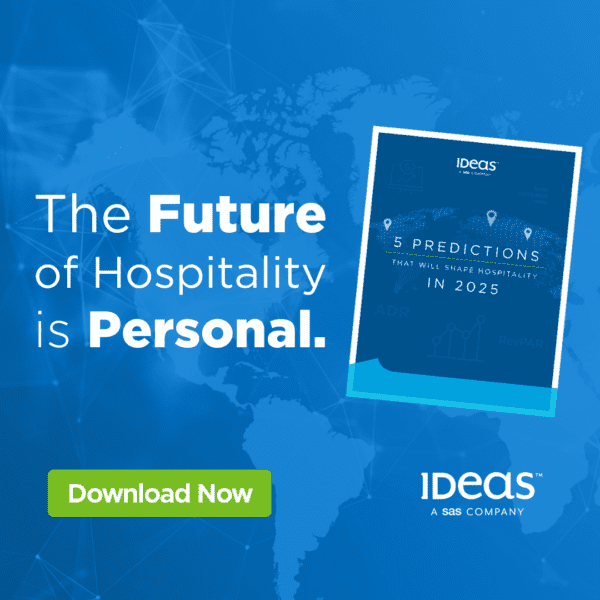 The future is all about personalization and engagement; it is about bridging the gaps between apps, customers, hotels and restaurants. People do not want 10 different apps using up space on their mobile telephone for each restaurant they visit, but rather just one single app that connects to them all. Therefore, we will see third party suppliers who will embrace all these connections under a single app.
The future is all about personalization and engagement; it is about bridging the gaps between apps, customers, hotels and restaurants. People do not want 10 different apps using up space on their mobile telephone for each restaurant they visit, but rather just one single app that connects to them all. Therefore, we will see third party suppliers who will embrace all these connections under a single app.
But who is the guest of the future? I think we can all agree they will be greatly influenced by technology and systems. But how will they use technology in terms of travel, booking accommodation or ordering food? It’s difficult to predict, but looking back five years ago to a time when tablets and mobile phones completely changed the way we looked for information offers an important clue.
It’s obvious that tomorrow’s guests will be sophisticated technology users. In fact, they already are. I am, of course, mainly talking about millennials, or Generation Y, of which there are two billion worldwide. This demographic, which has grown up using technology in all its forms, will shape the way technology evolves.
So, let’s see how it will evolve.
Personalisation
A new era of Point of Sale (POS), Property Management Systems (PMS) and advanced Customer Relationship Management (CRM) software is fueling personalization practices that will see greater engagement between customers and restaurants. A single app will allow diners to make restaurant reservations in such a way that diners will be able to reserve the same table each time they visit their favourite restaurant. Once seated, the server will have access to information regarding previous orders diners have made.
Although this practice has yet to reach Lebanon, it is active in other parts of the world. Here in Lebanon, however, ‘BIM POS Masterdine,’ has been allowing customers to track their delivery order through SMS without the customer having to install the restaurant’s app. Today, diners in the U.K. and the U.S. are able to track their food order being prepared in the kitchen, and know at what stage the meal is at.
Basically, the future is about breaking down the barriers between the kitchen and dining room. An app is also able to propose the best wine to go with a particular order. Currently, this system is not being used in the Middle East or Lebanon, since here in Lebanon, restaurant owners tend to be more focused on operational systems rather than analytics and how the resulting information could be used to help them. Investing in hospitality technology tools is vital if restaurants are to take advantage of this profitable trend that is sweeping the globe.
Artificial Intelligence
This technology will (in some countries it already is) help both in pricing and forecasting. One hurdle to overcome, in Lebanon at least, is the system of ‘fixed-price’ menus. In other countries like the U.K., ‘flexible menu pricing’ is increasing revenues and helping customers to know the best times to reserve a seat.
However, for the ‘flexible menu pricing’ system to be successful, there needs to be a certain level of demand. Hotels and airlines have already implemented the ‘flexible price’ system. On your next flight just try asking the people sitting near you about the price of their ticket. I guarantee you will have a specific price for each traveler. But for this same system to work for restaurants, pricing and forecast is important, which is where artificial intelligence comes in.
But in Lebanon, pricing, in terms of pricing the cost of food items at different times (the flexible-menu pricing system), has a question mark hanging over it. Firstly, demand must exceed supply, which just isn’t the case in Lebanon, since the supply of restaurants out numbers demand.
But it’s not just restaurants that are muscling in on artificial intelligence. Amadeus has a custom-made travel packaging solution that analyzes the social media activity of travelers and using the results, creates a model of interest. Artificial intelligence will also be more widespread within the customer- service sphere, which is becoming more virtualized and aimed solely at Millennials. Chatbots will replace humans − up to a certain point − in assisting customers online. However, any complex queries will be passed on to humans. As technology becomes even more sophisticated, this might not be the case in the future, with chatbots taking on more and more complex tasks.
Sport wristband trackers
This recent trend will definitely witness further expansion in the coming years. Already, health-conscious millennials in the U.S. are scanning their ‘fitbits’ into machines as they enter a restaurant. The menu offering is then based on the results of the scan. This technology is currently spreading to Europe. Here in the Middle East, and especially Lebanon, we need to see specific standards centralized for this system to work.
Mobile payments
Payments by mobile could eventually include paying by the much-talked-about Bitcoin. In the first week of December Bitcoin had increased by 50 percent in terms of value. From the beginning of the year till now, Bitcoin has increased 10 times in value: 1 Bitcoin has reached USD $16,000 in value, whereas previously it was USD $10,000. It is too early just yet for Bitcoin, or crypto currency, to be used in the hospitality industry just yet.
That said however, Expedia is using it and MacDonald’s will be using it by 2018. For restaurants in the future, the way Bitcoins will work is that Millennials will check and order the food from a single app, and once they have arrived at the restaurant itself, they will take a photograph of the venue and share it on social media. They will then pay automatically using the same app on their mobile via credit card, Applepay or Bitcoin.
Beacons
This is a special augmented reality technology that uses low-energy Bluetooth connections to communicate with smartphones and tablets. Businesses and individuals can place beacons on physical objects or in physical locations to broadcast information to these devices. This location-based technology is able to send personalized messages, and it is already creating customer engagement opportunities for hotels in the U.K. and the U.S.
This is how it works: A hotel has a customer due to arrive at midday. As soon as the client arrives at the airport terminal, they will receive a welcome message and information about the taxi and pickup point, giving the exact parking spot number and parking lot. During the taxi ride, the guest automatically receives an additional message welcoming them to the hotel. The guest will also be asked via message if they want to automatically check in now and, on getting a positive response, a quick response (QR) code that acts as a door key will be transmitted. Once the guest arrives to the room, a new message will be received about dining options, and so on.


















